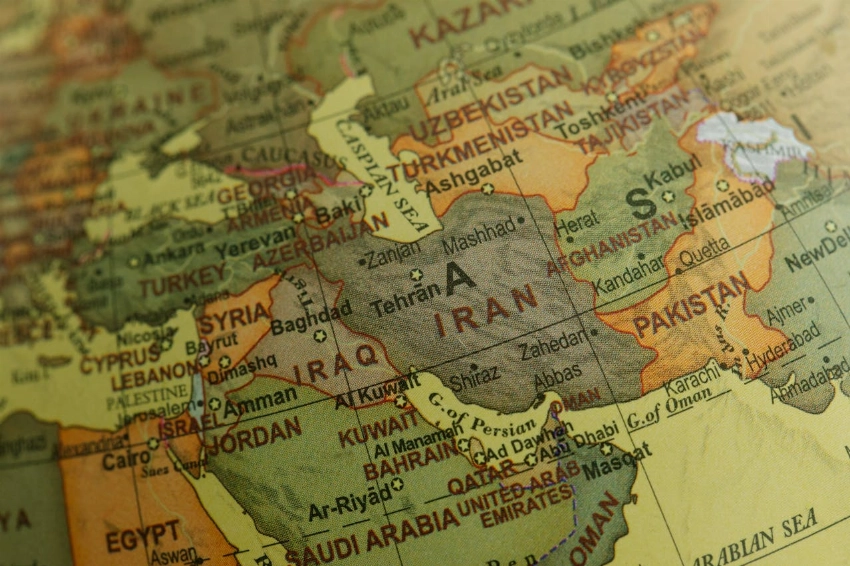Key Highlights
- What is the Current Minimum Salary in Kuwait Per Month in 2025?
- What is the Minimum Salary in Kuwait for Indian Workers in 2025? Experts Guide
- How Does Kuwait's Minimum Wage Compare Regionally in 2025? Updated
- What Are the Legal Requirements for Minimum Wage Compliance in Kuwait for Indians in 2025?
- How to Calculate Hourly Wages from Kuwait's Monthly Minimum Salary?
- What Benefits Must Employers Provide Beyond Minimum Salary in Kuwait 2025?
- When Will Kuwait's Minimum Wage Be Revised Next?
- How Does the Cost of Living Affect Minimum Wage Adequacy in Kuwait 2025?
- Kuwait's Wage Policies and Market Trends: What Expats Need to Know in 2025?
- Conclusion: Understanding Kuwait's Minimum Salary Landscape in 2025
With rapid fluctuations in the labor market in Kuwait, both employers and employees need to be aware of the country's minimum wage. Minimum Salary in Kuwait 2025 adopts a multi-tiered wage structure for different categories of employees. In the private sector, the minimum monthly remuneration rate is 75 KuwD. This fact sheet provides practical guidelines on payment in Kuwait, including exceptional circumstances related to paying expatriate employees, as well as the minimum salary in Kuwait for Indians working for foreign companies. The minimum salary in Kuwait per month is not uniform for all citizens because it is tied to different social classes rather than a single nationwide minimum wage.
What is the Current Minimum Salary in Kuwait Per Month in 2025?

Minimum Salary in Kuwait currently has different monthly minimum salaries for private sector and domestic workers: 75 KWD for private sector workers and 60 KWD for domestic workers. Both rates will be in effect before 2025 under Kuwait's labour law and other regulations governing labour relations with domestic workers. In USD terms, using 2025 exchange averages, these equal roughly $245 for private‑sector staff and $196 for domestic workers, noting Kuwait’s zero personal income tax framework that leaves gross pay as take‑home compensation.
-
Private Sector Monthly Wage: 75 KWD per month for all private‑sector employees, unchanged since its last adjustment and cited across 2025 compliance resources.
-
Domestic Worker Wages: standard minimum wage (after the 2016 reform in Kuwait) for household modernisation positions: 60 KWD/month for housekeeper, 60 KWD/month for nanny/driver/caregiver.
-
Population and Labour: Based on the standard working time and in accordance with Labour Law No. 6 of 2010 in Kuwait, the general provisions for calculating hourly rates and wages for workers have been issued. The law considers the normal working time to be 8 hours per day and 48 hours a week.
-
KWD to USD Conversion 2025: The average exchange rate of KWD to USD in 2025 is approximately 1 KWD = 3.27 USD. Therefore, for all the above replies, the KWD to USD exchange rate is as follows: 75 KWD = $245 per month; 60 KWD = $196 per month.
-
Purchasing Power Parity: Although the minimum wage in Kuwait may be tax-free for locals, the cost of living, including expenses such as housing, food, utilities, and transportation, is typically higher than these figures suggest. So, more jobs provide increased salary to enable workers to get the true worth of their salary payment and cover basic amenities of life for buying their essentials.
Kuwait Private Sector Minimum Wage Breakdown
The private sector minimum wage breakdown:
-
Fixed Rate: 75 KWD/month (~$245 USD January 2025), which is the current statutory private sector minimum wage of Kuwait.
-
Effective Since: Set to 75 KWD with effect reported as 11 June 2017 and noted as unchanged through 2025 in employer compliance updates.
-
Coverage: Applies to all private‑sector employees regardless of nationality, including the minimum salary in Kuwait for Indian workers under Kuwait’s employment law framework.
-
Hourly Equivalent: Approximately 0.39 KWD per hour based on a 48‑hour workweek and a 4‑week month, i.e., 75÷(48×4)≈0.39 75÷(48×4)≈0.39 KWD/hour, grounded in Kuwait’s 48‑hour weekly limit under employment law.
Kuwait Domestic Worker Salary Requirements
The domestic worker salary requirements are:
-
Minimum Wage: 60 KWD per month (or the equivalent of $196 USD, based on the 2025 empirical exchange rate), as per Kuwait's domestic labour reforms, the first GCC country to implement such reforms.
-
Miscellaneous Categories: Includes household workers engaged in domestic work in household roles such as housekeepers, nannies, drivers, and household caregivers, in the context of the domestic employment legislation and implementing decrees.
-
Other Advantages: the meal, housing, clothing, and medical assistance, as required by Law No. 68 of 2015, and registration in health insurance, under bilateral agreements (e.g., PH - KW) as one of the elements of worker compensation.
Also Read: Family Visa Kuwait: Latest Guide for Expatriates
What is the Minimum Salary in Kuwait for Indian Workers in 2025? Experts Guide
Kuwait deserves to retain its special employment arrangement for Indian nationals, which is well above the general Minimum Salary in Kuwait, because of the classification of workers by skills and the presence of bilateral employment contracts between India and Kuwait. The Indian Embassy in Kuwait introduced a detailed minimum salary in Kuwait for Indian workers, which offers massive premiums over the general 75 KWD minimum salary in Kuwait per month.
Indian Embassy Minimum Salary Cutoffs 2025
|
Job Category |
Dollar Salary Minimum Wage (KWD) |
USD Amount Equivalent |
|
Unskilled Labor |
100 |
$331 |
|
Skilled Labor |
200 |
$662 |
|
Healthcare Workers |
420 |
$1,390 |
|
Medical Doctors |
450 |
$1,490 |
How Much of a Unit Wage Difference Between Standard and Minimum Wage?
Indian nationals receive a wage premium of 33-500% of compensation from the applicable minimum wage, which indicates a range of the following things:
-
Differentiation On The Basis Of Skills: The significant addition is the distinction made by the Indian Embassy for skilled and unskilled workers on the basis of their skill level and professional qualifications, where skilled workers earn 200 KWD in comparison with the general pay of 75 KWD - that is a premium of 167%.
-
Cost of Living Adjustments: The improved wage structure recognises that the standard minimum salary in Kuwait 2025, which amounts to 75 KWD per month, may not be an adequate source of income for expatriate workers, especially those with families back in India.
-
Bilateral Employment Contracts: India's strategic partnership with Kuwait, which was levelled up during Prime Minister Modi's visit in December 2024, has a dedicated section on worker protection and fair remuneration, achieved with the Joint Working Group on Labour, Employment and Manpower Development:
-
Professional Qualification Recognition: The most generous benefits packages from the government are reserved for highly qualified Montessori physicians and healthcare professionals ($420-450 KWD), reflecting their higher education status and the integral role of the profession in Kuwait's healthcare sector.
This massive diaspora has enabled India to advocate for more favourable working conditions than the average minimum Salary in Kuwait 2025, utilising diplomatic channels and bilateral agreements.
How Does Kuwait's Minimum Wage Compare Regionally in 2025? Updated

Kuwait's minimum salary of 75 KWD ($242 USD) puts the country around the middle when compared to the other Gulf Cooperation Council (GCC) countries that have set minimum wage rates. While Qatari statutory minimum subsistence rates appear to be lower than those of competing regional counterparts, the tax-free nature of Kuwait and the universal nature of locational coverage give both the worker and employer in Kuwait a clear competitive edge.
The following table provides the minimum wage information for each country, indicating whether it applies to the total effects of exports.
|
Country |
Minimum Wage (USD) |
Currency |
Applicable To |
|
Kuwait |
$242 |
KWD 75 |
All private workers (Kuwaiti nationals) |
|
Bahrain |
US$798.00 |
BHD 300 |
Public sector only |
|
Oman |
$844 |
OMR 325 |
Nationals only |
|
Qatar |
$206 |
QAR 750 |
All workers |
|
Saudi Arabia |
$800 |
3,000 Saudi riyal |
public sector only |
|
UAE |
No minimum wage |
N/A |
N/A |
What Makes Kuwait's Wage Policy Unique?
Kuwait's minimum wage system is comprehensive, as it applies equally to nationals and expatriates working in the private industry, making Kuwait's minimum wage system one of the most inclusive in the region. This is opposite to the Omani practice of serving nationals only and the Bahraini practice of restricting the public sectors.
- No Income Tax: As Kuwait does not levy personal income tax, the minimum salary in Kuwait is, in net terms, i.e., what workers take home. Indeed, the tax benefit results in an increase in the purchasing power of the Kuwaiti minimum wage compared to other countries with comparable nominal figures but higher tax rates.
- Sector-Specific Rates: Kuwait distinguishes between private sector workers (75 KWD) and domestic workers (60 KWD), recognising the different nature of these employment relationships, yet still affords household workers statutory benefits—a step in the right direction in the context of the region.
- Increased Bilateral Agreements: For specific nationalities (such as Indians), Kuwait has allowed for negotiated minimum wages, based on the strength of bilateral diplomatic relations, where wages can be up to 33-500% higher than the standard rates, depending on the skill level of the migrant worker. Year after year, it remains competitive, thanks to the flexibility that allows skilled workers to move to Kuwait while maintaining base wage levels.
Minimum salary in Kuwait for Indian for Indian employees, which has eight differential classes from 100 KWD for non-skilled to 450 KWD for medical doctors for all categories, is much higher than the overall minimum wage rate. Based on studies on the purchasing power of nations, Kuwait's minimum salary might be less in figures than those of other GCC nations, but when other factors like cost of living, taxes are accounted for, an average PPP salary in Kuwait can be viewed as greater than that of many other GCC nations.
Also Read: Nursing Job Vacancy in Kuwait: Expert's Job Guide
What Are the Legal Requirements for Minimum Wage Compliance in Kuwait for Indians in 2025?
Many employers doing business in Kuwait are ultimately responsible for ensuring that they are in full compliance with all the demands of the minimum wage in Kuwait, super injunctions of which include full statutory obligations for the non-payment of wages, working conditions, and workers' protection. Kuwaitis are regulated regarding their employment under Labour Law No. 6 of 2010, which governs the payment of minimum wages, and under Law No. 68 of 2015, which applies to domestic workers.
Employer Obligations Under Kuwait Labour Law
-
Kuwaiti Dinar Monthly Salary Payments: Maximum wages in Kuwaiti Dinars (KWD) are paid within seven working days after the pay point. For monthly paid employees, wages are paid at least once a month, and these payments are made directly to workers' bank accounts in local banks.
-
Mandatory 125%: overtime for excess hours over 48 hours/week. Regular working hours do not exceed 48 hours per week and 8 hours a day. All work hours exceeding 48 hours per week must be paid as overtime at 1.25 times the introductory hourly rate. The minimum monthly salary in Kuwait is equivalent to 75 KWD per hour for a 48-hour workweek, which is approximately 1.56 KWD per hour.
-
Weekend/Holiday Work: Work that is carried out on the weekends, public holidays must be paid at 150-200% of the standard wage and ensuring that work carried out on the holidays is compensated by leave to the extent provided by law; Surely Muslim employees (another social policy in Ramadan) have been restricted to (a) maximum 36 hours per week (a).
-
Comprehensive Medical Insurance: Employers are required to offer health insurance coverage for expatriate workers and make social security contributions for Kuwaiti nationals. Employers are also required to provide food, clothing, accommodation, and medical treatment for the domestic worker, which would satisfy Kuwaiti standards.
-
Arabic Contract Obligations: All employment contracts should be drafted completely in Arabic and signed by the parties, as English contracts are not valid or binding contracts in Kuwaiti courts. Contracts with probationary periods (of no more than 100 days), notice periods (of no more than 3 months), and specific job descriptions.
Worker Rights and Protection Mechanisms
-
Ministry of Social Affairs and Labour (Labour Court): Workers who have suffered wage violations can file complaints with the Ministry of Social Affairs and Labour, which is responsible for wage protection and the overall enforcement of employment standards in Jordan. The Ministry has the authority to investigate non-compliance and impose penalties on employers who are found to be in violation.
-
Assistance by Embassy in Nationality-Specific Wage Disputes: Foreign workers are acquainted with the fact that they are entitled to receive help from the respective embassies for wage disputes and violations of employment rights, including violations related to the minimum salary for Indian workers. The Indian Embassy has its own minimum wage rates, which exceed the general requirements, ensuring greater protection for Indian nationals.
-
Anti-Exploitation Provisions For Domestic Workers: The law of domestic workers in Kuwait contains wide-ranging provisions to prevent them from working in dangerous conditions, loss of dignity, and wage deprivation. The Department of Domestic Labour has the authority to address complaints arising from any violation of the brother's duties by the employer.
How to Calculate Hourly Wages from Kuwait's Monthly Minimum Salary?

It is essential to understand the conversion of the minimum wage in Kuwait from a monthly rate to an hourly rate to be able to apply the rates properly to calculate overtime, part-time, and premium pay for work performed in Kuwait. Kuwait's labour law establishes a maximum workweek of 48 hours, which serves as the basis for all hourly rates.
Standard Hourly Rate Calculation
Formula: Monthly wage ÷ (48 hours × 4 weeks) = Hourly rate
|
Worker Category |
Monthly Wage (KWD) |
Hourly Rate (KWD) |
Hourly Rate (USD) |
|
Private Sector Workers |
75 |
0.39 |
$1.29 |
|
Domestic Workers |
60 |
0.31 |
$1.72 |
|
Indian Unskilled Labour |
100 |
0.52 |
$1.03 |
|
Indian Skilled Labour |
200 |
1.04 |
$3.44 |
|
Indian Healthcare Workers |
420 |
2.19 |
$7.25 |
|
Indian Medical Doctors |
450 |
2.34 |
$7.75 |
The standard private sector minimum salary in Kuwait per month of 75 KWD translates to 0.39 KWD hourly when divided by 192 total monthly hours. The minimum salary in Kuwait for Indian workers follows the same calculation methodology but with higher base amounts, reflecting the enhanced wage schedules negotiated by the Indian Embassy.
Kuwait Overtime and Premium Pay Calculations
|
Pay Type |
Rate Multiplier |
KWD per Hour |
USD per Hour |
|
Regular Hours |
100% |
0.39 |
$1.29 |
|
Regular Overtime (>48 hrs/week) |
125% |
0.49 |
$1.62 |
|
Weekend Work |
150% |
0.58 |
$1.92 |
|
Holiday Work |
200% |
0.78 |
$2.58 |
|
Ramadan Hours (Muslim workers) |
100%* |
0.52 |
$1.72 |
Also Read: Average Kuwait Nurse Salary: Pay Breakdown & Insights
What Benefits Must Employers Provide Beyond Minimum Salary in Kuwait 2025?
In Kuwait, employers are required to provide a comprehensive package of benefits that exceeds the minimum salary, consisting of mandated provisions mandated by law, as well as additional perks that support the recruitment and retention of talent. The total employee costs exceed the minimum salary in Kuwait per month due to the extensive benefits required.
Mandatory Employee Benefits
-
Free Accommodation: For domestic workers specifically, under Law 68 of 2015, the employer is required to provide the employee with housing of acceptable standards in Kuwait, with an estimated minimum monthly cost of KWD 100-300, depending on location, labour, and materials.
-
Free Meals: Employers must provide a daily food allowance or provision for domestic workers at a value of KWD 30-50/month; other employees may receive food allowances as part of their compensation package.
-
Medical Insurance: Employers must provide comprehensive health coverage for all expatriate labour, with estimated insurance costs ranging from KWD 50 to KWD 200/month/employee, depending on the coverage level, age, service provider, and other factors.
-
Annual Leave: All employees are entitled to paid annual leave of 30 working days upon completing one year of service, which represents approximately 8.33 % of the employee's yearly salary cost to the employer.
-
Transportation: Employee-related travel costs and the cost of the daily commute are typically covered, with commuting estimates ranging from KWD 20 to 50/month.
Industry-Standard Additional Perks
-
Annual Flight Tickets To Home Country: A customary benefit provided to many expatriate workers, which can vary widely in price based on destination and service class, typically ranging from KWD 200 to KWD 1,000 annually.
-
Annual Performance Bonuses: Salary paid on a merit basis that typically ranges between 0.5 to 6 months of salary annually for employees, despite having higher rates in sectors such as oil & gas and banking and finance, with salaries for Indian and other workers that are frequently well over the minimum salary in Kuwait for Indians
-
Professional Development Allowance: Allowance paid for training and certification support, averaging KWD 500 to KWD 2,000 per employee annually, with bonuses increasing for technical specialisation roles.
-
Sponsoring Dependent Visa: For Immediate family members of employees in qualified abroad-based positions: Employers in Kuwait provide a sponsorship visa for dependents of employees at certain salary thresholds each month when the employee's salary reaches KWD 400+ monthly, well beyond the basic minimum salary in Kuwait per month.
When Will Kuwait's Minimum Wage Be Revised Next?
There is no fixed schedule and no timeline for a review of the minimum salary in Kuwait - increases occur, at least for the most part, based on market factors, inflationary pressures, and government policy priorities and evaluations - not on predetermined schedules or cycle reviews. The current minimum wage in Kuwait per month of 75 KWD, which has not changed since at least 2017-2018, which is over seven years old, has not increased since we've been in one of the highest inflationary periods in our history.
Government Review Schedule
|
Review Parameter |
Details |
Status |
|
Review frequency |
No fixed schedule on an ad hoc basis |
Irregular |
|
Last major review |
Increase from 60 KWD to 75 KWD (2017-2018) |
7+ years ago |
|
Next scheduled review |
No official timetable |
TBD based on economics |
|
Current policy status |
75 KWD unchanged, planned through 2025 |
Keeping under periodic assessment |
Also Read: Kuwait Family Visa News: Latest Updates and Changes
How Does the Cost of Living Affect Minimum Wage Adequacy in Kuwait 2025?
As a measurement suggestion, full cost of living data suggests that the monthly minimum wage in Kuwait only covers a small fraction of a worker’s essential monthly fees if the worker does not receive any employer-paid benefitsThe minimum salary in Kuwait per month is 75 KWD, which is substantially challenged by adequacy when compared to real cost of living data, allowing us to measure the gap between minimum wage and the basic living expenses..
Essential Monthly Expenses for Minimum Wage Workers in Kuwait 2025
The essential monthly expenses for minimum wage workers are:
|
Expense Category |
Cost Range (KWD) |
Percentage of 75 KWD Minimum Wage |
|
Housing (if not employer-provided) |
150-250 |
200-333% |
|
Food |
80-120 |
107-160% |
|
Transportation |
30-50 |
40-67% |
|
Utilities |
40-60 |
53-80% |
|
Personal expenses |
40-80 |
53-107% |
|
Total estimated |
340-560 |
453-747% |
Why Living Wage Exceeds Minimum Wage in Kuwait?
|
Analysis Category |
Living Wage Estimate |
Minimum Wage Gap |
Impact |
|
Basic survival |
300-400 KWD |
300-433% above minimum |
Requires employer benefits |
|
Modest living standard |
400-500 KWD |
433-567% above minimum |
Needs shared accommodation |
|
Comfortable expat lifestyle |
600-800 KWD |
700-967% above minimum |
Professional salary |
Kuwait's Wage Policies and Market Trends: What Expats Need to Know in 2025?

Current Market Dynamics:
-
Kuwait maintains a competitive regional positioning with inclusive wage policies covering all nationalities
-
Zero income tax policy enhances net earnings compared to gross salary figures
-
Living costs average 300-600 KWD monthly for single individuals, indicating wage adequacy challenges
-
Expatriate workers comprise 70% of Kuwait's workforce, primarily in the construction and domestic sectors
-
Government reviews minimum wage structures every five years, with the next revision due in 2027
-
Indian Embassy wage schedules updated in 2019, reflecting inflation adjustments
-
Regional wage competitiveness: above Qatar ($206) but below Oman ($844) and Bahrain ($798)
Also Read: Kuwait Visit Visa for Indians: Latest Cost, Apply & More
Conclusion: Understanding Kuwait's Minimum Salary Landscape in 2025
The minimum salary in Kuwait is 75 KWD for employees in the private sector and 60 KWD for domestic workers. While these rates are intended to serve as the baseline for the labour compensation system in the country, they have remained unchanged since 2017-2018. The minimum salary in Kuwait per month is one component of a comprehensive compensation system that includes substantial employer-provided benefits, aiming to achieve a livable wage.
While the typical living expenses may vary between 340-560 KWD per month, the wage minimum is only a fraction of 13%-22% of basic living expenses. Therefore, housing, food, and benefits, included as part of the employer's overall benefits set, are integral to an employee's ability to survive in Kuwait.
While there is no reported minimum salary in Kuwait for Indian employees, the amounts range from the minimum wages of 100 KWD earned by unskilled workers to 450 KWD earned by medical employees, which are defined through necessary bilateral diplomatic relationships and skill levels.
Contact TerraTern for more information on Minimum Salary in Kuwait 2025: Complete Guide for Workers and Employers.






